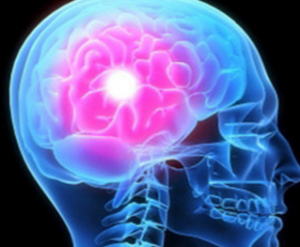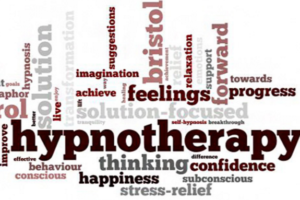 When you think about hypnosis, what do you visualize? For many, it’s a clock-swinging magician or a comedy act that forces an unwitting volunteer to make embarrassing public admissions on stage.
When you think about hypnosis, what do you visualize? For many, it’s a clock-swinging magician or a comedy act that forces an unwitting volunteer to make embarrassing public admissions on stage.
But hypnosis has a surprisingly robust scientific framework. Clinical research has shown that it can help relieve pain and anxiety and aid smoking cessation, weight loss, and sleep.
It can help children and adolescents better regulate their feelings and behaviors. Some people can even use “self-hypnosis” to manage stress, cope with life’s challenges, and improve their physical and emotional health.
Hypnosis creates “a non-judgmental immersive experience,” says Dr. David Spiegel, a Stanford University psychiatrist and leading researcher of hypnosis.
It’s been used in various forms for centuries, but it wasn’t until 1843 that the Scottish surgeon Dr. James Braid popularized the term “hypnosis.
” Braid’s central discovery—that concentration can guide the brain toward a more suggestible state—was and remains controversial. But physicians have continued to test and teach the technique over the centuries with great success, Spiegel says.
Today, a psychologist, psychiatrist, or other healthcare professional certified in hypnotherapy will first screen a potential client for their ability to be hypnotized using a validated suggestibility scale. (Not everyone is equally susceptible to hypnosis, but research has found that about two-thirds of adults are.)
The hypnotherapist will talk with them about what sort of sensory experiences make them feel safe, like a lakeshore retreat or a beach vacation.
 Then, the hypnotherapist will conjure that imagery—focusing, for example, on the salt spray of the ocean, seagulls calling overhead, and sun-kissed skin—to help the person go deeper into the calming visualization. If done right, the patient’s physical surroundings will melt away.
Then, the hypnotherapist will conjure that imagery—focusing, for example, on the salt spray of the ocean, seagulls calling overhead, and sun-kissed skin—to help the person go deeper into the calming visualization. If done right, the patient’s physical surroundings will melt away.
The result is a powerful combination of dissociation, immersion, and openness to new experiences, which culminates in what was once called a “trance,” but which modern hypnotherapists simply refer to as a “hypnotic state.” It can be achieved in just a few minutes, Spiegel says.
Such scene-setting techniques can create the ideal stage for positive transformation, says Binghamton University psychology professor Steven Jay Lynn. During hypnosis, people are more open to the suggestions of the hypnotherapist, whether those ask the patient to detach themselves from a past painful experience or visualize a solution to their problem.
For some people, these changes may be catalyzed in a one- or two-hour session. For others, hypnotherapy or self-hypnosis may be a regular part of their mental health care. “Hypnosis can modify consciousness in many ways,” Lynn says.
This state of deep relaxation isn’t particularly difficult for most people to dive into or emerge from. It’s similar to a “flow state,” Spiegel says, or an altered state of consciousness in which a person is so immersed in a given activity, their focus narrows and their sense of time shifts.
It’s also reminiscent of what happens during meditation, except instead of training people to tune into the present moment, hypnosis makes them more receptive to suggestion. Like meditation practice, many people are capable of doing hypnosis on their own, Spiegel says. In 2020, he co-founded Reveri, a subscription-based self-hypnosis app that’s structured a lot like Calm or Headspace.
A user can access recordings that guide them into a hypnotized state, after which they’re given suggestions or statements that lead them toward a goal the person selects before the session. “We do it all the time,” Spiegel says of entering and exiting these mental states, “but in hypnosis you do it more.”
Brain-imaging studies have helped to illuminate what happens inside the hypnotized brain, though much still remains a mystery. During hypnosis, activity in a brain region that helps people switch between tasks quiets down, Spiegel says.
This same region seems to disconnect from another area responsible for self-reflection and daydreaming—which may be why hypnotized people aren’t worried about who they are or what they’re doing.
Researchers have also found that hypnosis can calm brain regions that help control autonomic functions like heart rate, blood flow, and breathing. This is likely what leads to the physical relaxation that’s a hallmark of hypnosis, Spiegel says.
One of the most interesting modern applications of hypnosis is in the operating room, says Lorenzo Cohen, director of the Integrative Medicine Program at the University of Texas MD Anderson Cancer Center. For some localized breast cancer surgeries, namely lumpectomies, the center lets patients choose between general anesthesia or a localized anesthetic and hypnotherapy.
Those who choose the second option remain fully awake during their surgery, but a hypnotherapist first helps them enter a state of deep relaxation, or “hypnosedation,” Cohen says. “The local [anesthesia] should be doing its thing,” Cohen says. “The rest is in your head.”
More than 30 clinical trials have affirmed the use of hypnosedation, says Cohen (who is also researching the practice).
Studies have shown that people who received hypno-sedation experienced less preoperative anxiety, required less pain medication during surgery, and reported less post-operative pain intensity, nausea, fatigue, and discomfort than people who chose general anesthesia, Cohen says.
“The hypothesis is that the patients who are under general anesthesia, even though they’re not conscious, are having an intense stress response,” he says.
This can suppress an immune system that, in cancer patients, is already compromised by the disease and its treatments. When patients choose hypnosis, Cohen believes the body’s fight-or-flight response may be reduced.
Despite the mounting evidence, hypnosis is not without skeptics. Randomized controlled trials have found that hypnosis can help with pain and anxiety associated with a range of medical conditions, but even the best studies can’t meet the gold-standard of a double-blind design, Spiegel says.
 While patients and practitioners can be kept in the dark about what pill they’re administering or receiving, it’s almost impossible to design a study where neither side knows hypnosis is being delivered, he adds.
While patients and practitioners can be kept in the dark about what pill they’re administering or receiving, it’s almost impossible to design a study where neither side knows hypnosis is being delivered, he adds.
And historically, the power of hypnosis hasn’t always been wielded responsibly. The imaginative potential of hypnosis has been shown to create false memories—sometimes with devastating effects. At least 27 states ban hypnotically-elicited testimony from appearing in court. Hypnotherapists should avoid using the technique to “recover” memories, Lynn says.
But when conducted by a trained professional and properly applied, modern hypnotherapy can provide powerful results. Susceptibility to suggestion is often “viewed as a liability or a weakness,” Spiegel says, “but it’s really a strength.”
by: Eleanor Cummings

 Among the wide array of alternative therapies, hypnotherapy has long been an interesting option for those seeking unconventional solutions to various issues like stress, anxiety, and habit breaking. In addition to the usual mainstream hypnotherapy options there are several applications of this meditative modality that extend beyond the conventional, delving into uncharted territories of inner thought.
Among the wide array of alternative therapies, hypnotherapy has long been an interesting option for those seeking unconventional solutions to various issues like stress, anxiety, and habit breaking. In addition to the usual mainstream hypnotherapy options there are several applications of this meditative modality that extend beyond the conventional, delving into uncharted territories of inner thought.
Quantum Hypnotherapy
Picture a form of hypnotherapy that ventures into the quantum realm, blurring the lines between science and spirituality. Quantum hypnotherapy suggests that our consciousness is intricately linked with the universe’s fabric. Practitioners guide individuals through profoundly deep hypnotic journeys, uncovering the potential for healing and self-discovery at the quantum level.
Hypnotic Regression to Parallel Realities
Traditional regression hypnotherapy is typically a journey to past experiences, but what if we could explore not just our own past, but parallel  realities? Some practitioners guide individuals into hypnotic states offering access to memories from alternate timelines. This unconventional approach invites a captivating exploration within the depths of the hypnotic mind.
realities? Some practitioners guide individuals into hypnotic states offering access to memories from alternate timelines. This unconventional approach invites a captivating exploration within the depths of the hypnotic mind.
Dream Integration Hypnotherapy
Dreams are considered windows to the subconscious, and dream integration hypnotherapy takes this notion to new heights. This approach guides individuals into a hypnotic state where they actively interact with and influence the content of their dreams. By subconsciously navigating the dream realm, individuals gain insights into their deepest fears, desires, and unresolved issues.
Hypnotherapy and Virtual Reality
In this age of advanced technology, some hypnotherapists incorporate virtual reality (VR) into their practice. This innovative approach creates immersive and personalized hypnotic experiences within virtual environments. Whether overcoming phobias or addressing trauma, the fusion of hypnotherapy and VR provides a unique and powerful avenue for therapeutic exploration.
Metaphysical Hypnotherapy
Metaphysical hypnotherapy goes beyond the conventional mind-body connection, exploring intricate relationships between the mind, spirit, and the unseen energies around us. Practitioners may guide individuals to connect with spirit guides, explore past lives, or tap into higher states of consciousness for profound healing and self-awareness.
Conclusion
These fascinating applications may stretch the boundaries of traditional hypnotherapy, yet they underscore the evolving nature of alternative therapies. As individuals continue to seek unconventional paths for personal growth and healing, hypnotherapy emerges as an effective gateway into the uncharted realms of the inner mind.
by P Gustafson

 Hypnosis has long been used to treat and manage a host of psychiatric and neurologic symptoms. However, not all patients respond equally to this therapy type. About two thirds of the general adult population are estimated to be at least somewhat hypnotizable, and 15% are highly hypnotizable.
Hypnosis has long been used to treat and manage a host of psychiatric and neurologic symptoms. However, not all patients respond equally to this therapy type. About two thirds of the general adult population are estimated to be at least somewhat hypnotizable, and 15% are highly hypnotizable.
Through brain imaging, the Stanford team found that high hypnotizability is associated with greater functional connectivity between the left dorsolateral prefrontal cortex (DLPFC) and the dorsal anterior cingulate cortex.
“A novel aspect of this trial is that we used the person’s own brain networks, based on brain imaging, to target the right spot,” Co-senior author Nolan Williams, MD, with Stanford University, California, said in a news release.
The team chose patients with chronic pain because hypnosis has been shown to be a “highly effective analgesic that has a far better risk/benefit ratio than widely overutilized opioids that have serious fatal overdose potential,” Spiegel told Medscape Medical News.
The pre-to-post SHIFT change in hypnotic induction profile scores, a standardized measure of hypnotizability, was significantly greater in the active vs sham group after just 92 seconds of stimulation (P = .046).
Only the active SHIFT group showed a significant increase in hypnotizability following stimulation, an effect that lasted for about 1 hour.
“Increasing hypnotizability in people who are low-to-medium hypnotizable individuals could improve both the efficacy and effectiveness of therapeutic hypnosis as a clinical intervention,” the researchers wrote.
They note that because this was a “mechanistic study,” it did not explore the impact of increased hypnotizability on disease symptoms. They also note that further studies are needed to assess the dose-response relationships of SHIFT.

Transformative Research
“This line of research is fascinating,” Shaheen Lakhan, MD, PhD, neurologist, and researcher in Boston, told Medscape Medical News.
“We are nearing an era of personalized, noninvasive brain modulation. The ability to individually modulate the DLPFC opens new possibilities for brain health beyond hypnotizability for fibromyalgia,” said Lakhan, who wasn’t involved in the study.
“The DLPFC is involved in executive functions (and disorders) like attention (ADHD), emotional regulation (depression), motivation (schizophrenia), and impulse control (addiction),” he noted.
“Soon we may no longer need large expensive devices like transcranial magnetic stimulators as in this research study. Smartphones could deliver tailored digital therapeutics by engaging specific brain circuits,” Lakhan predicted.
“Imagine using an app to receive treatment customized to your unique brain and needs — all without anything implanted and delivered anywhere. The potential to precisely modulate the brain’s wiring to enhance cognition and mental health, without surgery or physical constraints, is incredibly promising. The possibilities are intriguing and could truly transform how we address brain diseases,” he added.
The study was supported by a grant from the National Center for Complementary and Integrative Health (NCCIH), part of the National Institutes of Health (NIH). Williams is a named inventor on Stanford-owned intellectual property relating to accelerated TMS pulse pattern sequences and neuroimaging-based TMS targeting; has served on scientific advisory boards for Otsuka, NeuraWell, Magnus Medical, and Nooma as a paid advisor; and holds equity/stock options in Magnus Medical, NeuraWell, and Nooma. Spiegel is a cofounder of Reveri Health, Inc., an interactive hypnosis app (not utilized in the current study).

Introduction:
Hypnotherapy, a powerful and often misunderstood therapeutic technique, has been gaining recognition for its efficacy in addressing many common problems such as stress, fear, smoking, obesity, pain, IBS, insomnia, and substance abuse. This article delves into this fascinating modality, unraveling its mysteries and shedding light on its profound impact on the human mind.
The Basics of Hypnotherapy:
At its core, hypnotherapy involves inducing a state of deep physical relaxation, focused attention along with heightened suggestibility. Contrary to common misconceptions, it is not a form of mind control, but rather a collaborative process between practitioner and the client. A hypnotherapist guides the client into a more receptive level of thought and then offers positive suggestions supporting healthy change.
Understanding the Hypnotic Trance:
Think of hypnotherapy as goal-oriented meditation. With simple direction and creative scenarios clients are comfortably guided into a deep daydream state, which is something we all routinely experience in the form of ‘zoning out’ or becoming momentarily ‘lost in our thoughts’. Another example is the phenomenon referred to as ‘highway hypnosis’ when, on long drives, we can slide into that daydream state and reach our destination with no clear memory of the journey.
These are common, everyday examples of when the subconscious mind is more open and active. It’s also important to understand that we as humans can shift from one level of awareness to another. Hypnosis is a language tool enabling this therapeutic transition.
Benefit of Accessing Subconscious Thought:
This is why hypnotherapy is such a powerful tool. Think of the subconscious as the hard drive; the home of all habits, memories, emotions, values and beliefs that shape the routine patterns of our daily lives. If we routinely repeat any pattern of action, thought, or emotion, and its repeated long enough, it becomes rooted in the subconscious mind for better or worse.
In life, it’s all about our routine pattern of thought, how we think and what we most routinely think about that dictates our life experience; how we feel, how we appear, and how we respond to the world around us.
It’s also important to know that the subconscious doesn’t care if the pattern is good or bad; healthy or not. It also doesn’t matter what we intellectually or consciously may prefer. Once problem patterns are rooted, they can feel automatic. Smokers know that smoking is a potentially  deadly habit, and they are also certainly aware of the cost. Along with the addictive qualities of nicotine, the repetitive, ritualistic pattern of smoking reinforces the habit to continue, despite what we might consciously prefer.
deadly habit, and they are also certainly aware of the cost. Along with the addictive qualities of nicotine, the repetitive, ritualistic pattern of smoking reinforces the habit to continue, despite what we might consciously prefer.
Another example of a pattern problem is dieting. There is a good reason why there are dozens of diets to choose from, dieting doesn’t work. Slick, manipulative advertising promises rapid results often involving extreme restrictions or unsustainable practices, leading to short-term weight loss followed by rebound weight gain when normal eating resumes. UCLA posted this study: in less than two years, 23% of dieters gained back more weight than they lost. In more than two years that percentage rose to 83%.
The dieting concept implies a temporary, conscious level change with eating habit patterns which reside on a much deeper, subconscious, level. It’s not a pound problem, it’s a pattern problem. Dieting is like weeding your garden by only clipping them off at the ground level. It looks great for a while, but the problem always returns.
For lasting results, it’s crucial to adopt a more permanent and balanced lifestyle, focusing on nourishing the body rather than just restricting calories. Desperate overweight individuals continue searching for an answer that is not readily available.
With hypnotherapy, we can create an emotional disconnect from the problem pattern and plant seeds supporting healthy change. Clients then take the same approach to establish sustainable relief as they previously took to secure the problem, repetition.
My clients have easy access to mp3 recordings of their sessions via Dropbox and listen daily for a minimum of 3 months. Without repetition the office session is like a massage; it feels good in the moment but it’s always back to business as usual.
A great longevity study confirmed that 71% of patients with irritable bowel syndrome, who listened daily to home recordings of IBS specific hypnosis sessions for 3 months were still symptom-free after 5 years. (Gonsalkorale WM 2003)
hypnosis sessions for 3 months were still symptom-free after 5 years. (Gonsalkorale WM 2003)
Just follow the feeling. The advantage hypnotherapy has over other options is that it feels wonderful. When that feel-good connection is made on the initial visit, clients never see listening to home sessions as a chore.
Applications of Hypnotherapy:
Hypnotherapy has proven to be effective in treating a wide range of conditions. These include, but are not limited to:
- Anxiety and Stress Management: Hypnotherapy helps individuals achieve deep relaxation, alleviating anxiety and stress by reprogramming negative thought patterns.
- Smoking Cessation: By targeting the subconscious mind’s associations with smoking, hypnotherapy aids in breaking the habit and promoting a smoke-free lifestyle.
- Weight Loss: Addressing the root causes of unhealthy eating habits, hypnotherapy supports individuals in adopting positive behaviors for sustainable weight loss.
- Pain Management: Chronic pain sufferers can benefit from hypnotherapy as it helps modulate the perception of pain and promotes relaxation, reducing reliance on medication.
- Phobias and Fears: Hypnotherapy assists in uncovering the origins of phobias and fears, facilitating their resolution through targeted suggestions.
- Substance abuse: Hypnotherapy can initiate a sense of euphoria which clients can enjoy daily. With repetition, this new experience can become a preferred alternative to drugs and/or alcohol.
The Therapeutic Process:
In my practice, the initial visit involves a discussion of the client’s goals and concerns, followed by a review of how/why hypnotherapy can help. Then I teach clients how to listen to a session properly, and what to experience in terms of physical sensations such as warmth, tingling, weightlessness or feeling peacefully heavy.
I also review the potential of unique visual imagery such as colors or unexpected imaginative scenarios and how personal experiences with hypnotherapy can vary from day to day. It’s best to allow each session to be uniquely right for you that moment in time.
Prior to conducting the hypnotherapy session, I also teach my clients how to do self-hypnosis. This is a simple technique that empowers individuals to access meditative relaxation on their own which only takes about 10 minutes.
 With self-hypnosis the client is in a light meditative trance which makes it so easy to then transition into the hypnotherapy session. Most clients have no previous experience with hypnotherapy and this approach makes it so much easier for anyone to get into the flow of the process on the first visit.
With self-hypnosis the client is in a light meditative trance which makes it so easy to then transition into the hypnotherapy session. Most clients have no previous experience with hypnotherapy and this approach makes it so much easier for anyone to get into the flow of the process on the first visit.
Once the session begins, I help clients into deeper mediative relaxation and then guide them through creative scenarios supporting specific goals. This is very much a collaborative process where clients are actively participating in their own healthy transformation.
Ethical Considerations:
This empowering modality is rapidly becoming more widely embraced thanks in part to the many meditation apps readily available to anyone searching for healthy relief. However, there is still a long way to go.
At the time of this writing there are thirty states offering specific standards of practice for hypnotherapy [more]. Fifteen states defer to the guidelines presented by the National Guild of Hypnotists and the remaining states currently have no formal recommendations.
Conclusion:
Hypnotherapy, once relegated to the realm of mysticism, is now experiencing growing recognition as a legitimate and effective therapeutic modality. As our understanding of the mind continues to evolve, hypnotherapy stands as a beacon of hope for those seeking positive and lasting changes in their lives. The key lies in unlocking the potential of the subconscious mind, harnessing its power for personal transformation and self-healing.
by: Paul Gustafson RN CH
 Despite robust evidence for myriad ailments and sound mechanistic data, hypnosis is underused by internists. Using hypnosis fulfills our pledge to abide by evidence-based treatments that alleviate suffering with the least collateral harm, but there is a discrepancy between its benefits and physicians who offer the treatment.
Despite robust evidence for myriad ailments and sound mechanistic data, hypnosis is underused by internists. Using hypnosis fulfills our pledge to abide by evidence-based treatments that alleviate suffering with the least collateral harm, but there is a discrepancy between its benefits and physicians who offer the treatment.
Although hypnosis may appear in the medical curricula at academic powerhouses like Baylor, Harvard, Columbia, and Stanford, hypnosis training is rare even at these institutions. Here is why a modern resurrection of the oldest Western form of psychotherapy should inspire internists to get trained and offer medical hypnosis broadly.
Hypnosis, and its myths and misconceptions, have evolved since the 18th century when Franz Mesmer inadvertently led hypnosis into obscurity with his theory about manipulating a force called “animal magnetism.” These claims were dispelled by the French Royal Academy of Sciences, and it took nearly 100 years for Scottish physician James Braid to first describe a mental and suggestive theory of hypnosis as a waking physiologic state.
The 2014 definition from the American Psychological Association’s Division 30 describes hypnosis as “a state of consciousness involving focused attention and reduced peripheral awareness characterized by an enhanced capacity for response to suggestion.”
Long-standing empirical evidence demonstrates that hypnosis impacts perception, symptoms, and habits, which have recently been explained by advanced diagnostic modalities like functional magnetic resonance imaging (fMRI). Changes during hypnosis include reduced activity in the dorsal portion of the anterior cingulate cortex (a key component of the salience network) and connectivity between the prefrontal cortex and the insula (a pathway for mind-body control).
Augmented by data on neurotransmitter metabolism and genetics, the neurophysiologic basis of hypnosis is no longer mysterious. Though our understanding of the mechanism of action of hypnosis is more robust than that of even acetaminophen, this has not sufficed to enhance its use.
 Skeptics describe hypnosis in 1 of 3 ways: dangerous mind control, an ineffective farce, or placebo. It is often viewed as a loss of control and, therefore, dangerous, when in fact it is a powerful means of teaching patients how to control mind and body. The ability to enter into hypnosis, termed hypnotizability, is a stable trait possessed by most people, which can be entered into or terminated by the patient.
Skeptics describe hypnosis in 1 of 3 ways: dangerous mind control, an ineffective farce, or placebo. It is often viewed as a loss of control and, therefore, dangerous, when in fact it is a powerful means of teaching patients how to control mind and body. The ability to enter into hypnosis, termed hypnotizability, is a stable trait possessed by most people, which can be entered into or terminated by the patient.
It is not effective in the presence of conditions such as stroke or schizophrenia or impaired focused attention or language processing. Hypnosis is more powerful than placebo (though patient expectancy is a moderating factor), and placebo effect is blocked by administration of naloxone, while the hypnotic analgesia is not.
Reviews on hypnosis for internal medicine topics are impressive, with demonstrated efficacy for migraine headache,4 irritable bowel syndrome,5 and anxiety.6 Hypnosis improves procedural pain and emotional distress and reduces medication consumption up to 40%7—in short, if hypnosis were a drug, it would be standard of care. Internists should prescribe hypnosis particularly when it outperforms the current standard of care by safety and efficacy, as in the case of opioids and sedatives.
Patients have a strong appetite for taking charge of their symptoms; online hypnosis videos for anxiety and insomnia boast 15-19 million views, and medical hypnosis is quite acceptable by patients.8 But patients cannot be expected to differentiate between legitimate and manipulative sources of hypnosis online any more than if they bought pills off the street. This treatment modality falls under the purview of medicine, and our duty is to provide safe access. To do this, we must improve the supply.
 Formal training for medical providers is offered through national societies, such as the American Society of Clinical Hypnosis (ASCH) and Society for Clinical and Experimental Hypnosis (SCEH). Trainings span 4 days and include ethics and informed consent in addition to practical skills. Hospital credentialing for the privilege of hypnosis may be required: If none exists, designing one to include formal training and mentorship requirement is advised. For institutional trailblazers, individuals in the hypnosis societies can provide mentorship.
Formal training for medical providers is offered through national societies, such as the American Society of Clinical Hypnosis (ASCH) and Society for Clinical and Experimental Hypnosis (SCEH). Trainings span 4 days and include ethics and informed consent in addition to practical skills. Hospital credentialing for the privilege of hypnosis may be required: If none exists, designing one to include formal training and mentorship requirement is advised. For institutional trailblazers, individuals in the hypnosis societies can provide mentorship.
Hypnosis training includes tools for helping our patients to help themselves, which benefits all our patients even outside a formal session. Telling a patient: “Don’t think about purple elephants” will assure that they do. Through the lens of hypnosis, one appreciates that even the common phrase “How bad is your pain” is fraught with negative associations.
With all their capacity to trust their physician, patients internalize “You have bad pain.” Contrast this with the phrase, “How comfortable are you right now?” The patient scans their body for comfort rather than pain and, if discomfort is reported, can be followed up with the 0-10 scale. These subtle adjustments acknowledge comfort without the disservice of anticipatory suffering. This is the healing art of medicine.
Additionally, the trained physician can practice self-hypnosis for stress management, insomnia, or performance anxiety, thereby avoiding medications that blunt their focus. Our patients, colleagues, trainees, and families stand to benefit.
Hypnosis research is funded by the National Center for Complementary and Integrative Health (NCCIH), and researchers are making inroads into the genetic aspects of hypnotizability and response to treatment and studying hypnosis for pain management for cancer and surgery, smoking cessation, and stress management in health care.
The automation of hypnosis using recordings, web-based applications, and smart-speaker devices is being tested to expand access to hypnosis interventions. From basic science to clinical efficacy to medical education, hypnosis research of all kinds has relevance for internal medicine.
Internists are the ambassadors of evidence. Our broad training and scope maximizes our effectiveness as healers, but we mustn’t lose sight of that which experiences illness: the human mind. When the technique of hypnosis is properly illuminated, its role will be welcomed and respected by our patients.
They will benefit from less pain, anxiety, insomnia, habits such as smoking, and the side effects that accompany many pharmacological treatments. We will benefit from the satisfaction of reacting nimbly to the best evidence for safer treatments and, perhaps, also enjoy a better night’s sleep. This is a call to action for broader use of hypnosis with intrepid internists leading the charge.
by: Jessie Kittle, MD and David Spiegel, MD

 A new study published Nov. 4, 2019, in the journal JAMA Internal Medicine details the first comprehensive look across the scientific literature at the role of mind-body therapies in addressing opioid-treated pain.
A new study published Nov. 4, 2019, in the journal JAMA Internal Medicine details the first comprehensive look across the scientific literature at the role of mind-body therapies in addressing opioid-treated pain.
The researchers found that certain mind-body therapies can reduce pain, as well as reduce opioid use, among patients treated with prescription opioids.
These findings are critical for medical and behavioral health professionals as they work with patients to determine the best and most effective treatments for pain.”
Eric Garland, lead author on the study explained that mind-body therapies focus on changing behavior and the function of the brain with the goal of improving quality of life and health.
Mind-body therapies include clinical use of meditation/mindfulness, hypnosis, relaxation, guided imagery, therapeutic suggestion and cognitive-behavioral therapy.
The researchers examined over 4,200 articles to identify 60 previously published randomized controlled trials on psychologically oriented mind-body therapies for opioid-treated pain.
The randomized controlled trials included in the study involved more than 6,400 study participants.
The research team looked at the type of pain experienced by the study participants, the type of mind-body therapy used and its effect on the severity of pain and the use or misuse of opioids.
They found that meditation/mindfulness, hypnosis, therapeutic suggestion and cognitive-behavioral therapy all demonstrated significant improvements in pain severity.
They also found that the majority of the meditation/mindfulness, therapeutic suggestion and cognitive-behavioral therapy studies showed improvements in opioid use or misuse. In contrast, two studies utilizing relaxation found significantly worsened results in opioid dosing.
Notably, mind-body therapies seem to be effective at reducing acute pain from medical procedures, as well as chronic pain.
The researchers highlighted this as an important finding, as mind-body therapies could be easily integrated into standard medical practice and could potentially prevent chronic use of opioids and opioid use disorder.
 Since mind-body therapies primarily use mental techniques and can continue to be utilized by patients after formal treatment, they may be more easily-accessible than other treatments.
Since mind-body therapies primarily use mental techniques and can continue to be utilized by patients after formal treatment, they may be more easily-accessible than other treatments.
The researchers also concluded that two of the mind-body therapies examined, meditation/mindfulness and cognitive-behavioral therapy, might have the highest clinical impact, since they are so widely accessible and affordable.
“A study published earlier this year projected that by 2025, some 82,000 Americans will die each year from opioid overdose,” said Garland.
“Our research suggests that mind-body therapies might help alleviate this crisis by reducing the amount of opioids to cope with pain. If doctors, nurses, social workers, policymakers, insurance companies and patients use this evidence as we make decisions, we can help stem the tide of the opioid epidemic.”
Reviewed by: Kate Anderton
 When you think about hypnosis, what do you visualize? For many, it’s a clock-swinging magician or a comedy act that forces an unwitting volunteer to make embarrassing public admissions on stage.
When you think about hypnosis, what do you visualize? For many, it’s a clock-swinging magician or a comedy act that forces an unwitting volunteer to make embarrassing public admissions on stage. Then, the hypnotherapist will conjure that imagery—focusing, for example, on the salt spray of the ocean, seagulls calling overhead, and sun-kissed skin—to help the person go deeper into the calming visualization. If done right, the patient’s physical surroundings will melt away.
Then, the hypnotherapist will conjure that imagery—focusing, for example, on the salt spray of the ocean, seagulls calling overhead, and sun-kissed skin—to help the person go deeper into the calming visualization. If done right, the patient’s physical surroundings will melt away.
 While patients and practitioners can be kept in the dark about what pill they’re administering or receiving, it’s almost impossible to design a study where neither side knows hypnosis is being delivered, he adds.
While patients and practitioners can be kept in the dark about what pill they’re administering or receiving, it’s almost impossible to design a study where neither side knows hypnosis is being delivered, he adds.
 Among the wide array of alternative therapies, hypnotherapy has long been an interesting option for those seeking unconventional solutions to various issues like stress, anxiety, and habit breaking. In addition to the usual mainstream hypnotherapy options there are several applications of this meditative modality that extend beyond the conventional, delving into uncharted territories of inner thought.
Among the wide array of alternative therapies, hypnotherapy has long been an interesting option for those seeking unconventional solutions to various issues like stress, anxiety, and habit breaking. In addition to the usual mainstream hypnotherapy options there are several applications of this meditative modality that extend beyond the conventional, delving into uncharted territories of inner thought. realities? Some practitioners guide individuals into hypnotic states offering access to memories from alternate timelines. This unconventional approach invites a captivating exploration within the depths of the hypnotic mind.
realities? Some practitioners guide individuals into hypnotic states offering access to memories from alternate timelines. This unconventional approach invites a captivating exploration within the depths of the hypnotic mind.

 Hypnosis has long been used to treat and manage a host of psychiatric and neurologic symptoms. However, not all patients respond equally to this therapy type. About two thirds of the general adult population are estimated to be at least somewhat hypnotizable, and 15% are highly hypnotizable.
Hypnosis has long been used to treat and manage a host of psychiatric and neurologic symptoms. However, not all patients respond equally to this therapy type. About two thirds of the general adult population are estimated to be at least somewhat hypnotizable, and 15% are highly hypnotizable.


 deadly habit, and they are also certainly aware of the cost. Along with the addictive qualities of nicotine, the repetitive, ritualistic pattern of smoking reinforces the habit to continue, despite what we might consciously prefer.
deadly habit, and they are also certainly aware of the cost. Along with the addictive qualities of nicotine, the repetitive, ritualistic pattern of smoking reinforces the habit to continue, despite what we might consciously prefer. hypnosis sessions for 3 months were still symptom-free after 5 years. (Gonsalkorale WM 2003)
hypnosis sessions for 3 months were still symptom-free after 5 years. (Gonsalkorale WM 2003) With self-hypnosis the client is in a light meditative trance which makes it so easy to then transition into the hypnotherapy session. Most clients have no previous experience with hypnotherapy and this approach makes it so much easier for anyone to get into the flow of the process on the first visit.
With self-hypnosis the client is in a light meditative trance which makes it so easy to then transition into the hypnotherapy session. Most clients have no previous experience with hypnotherapy and this approach makes it so much easier for anyone to get into the flow of the process on the first visit. Despite robust evidence for myriad ailments and sound mechanistic data, hypnosis is underused by internists. Using hypnosis fulfills our pledge to abide by evidence-based treatments that alleviate suffering with the least collateral harm, but there is a discrepancy between its benefits and physicians who offer the treatment.
Despite robust evidence for myriad ailments and sound mechanistic data, hypnosis is underused by internists. Using hypnosis fulfills our pledge to abide by evidence-based treatments that alleviate suffering with the least collateral harm, but there is a discrepancy between its benefits and physicians who offer the treatment. Skeptics describe hypnosis in 1 of 3 ways: dangerous mind control, an ineffective farce, or placebo. It is often viewed as a loss of control and, therefore, dangerous, when in fact it is a powerful means of teaching patients how to control mind and body. The ability to enter into hypnosis, termed hypnotizability, is a stable trait possessed by most people, which can be entered into or terminated by the patient.
Skeptics describe hypnosis in 1 of 3 ways: dangerous mind control, an ineffective farce, or placebo. It is often viewed as a loss of control and, therefore, dangerous, when in fact it is a powerful means of teaching patients how to control mind and body. The ability to enter into hypnosis, termed hypnotizability, is a stable trait possessed by most people, which can be entered into or terminated by the patient. Formal training for medical providers is offered through national societies, such as the American Society of Clinical Hypnosis (ASCH) and Society for Clinical and Experimental Hypnosis (SCEH). Trainings span 4 days and include ethics and informed consent in addition to practical skills. Hospital credentialing for the privilege of hypnosis may be required: If none exists, designing one to include formal training and mentorship requirement is advised. For institutional trailblazers, individuals in the hypnosis societies can provide mentorship.
Formal training for medical providers is offered through national societies, such as the American Society of Clinical Hypnosis (ASCH) and Society for Clinical and Experimental Hypnosis (SCEH). Trainings span 4 days and include ethics and informed consent in addition to practical skills. Hospital credentialing for the privilege of hypnosis may be required: If none exists, designing one to include formal training and mentorship requirement is advised. For institutional trailblazers, individuals in the hypnosis societies can provide mentorship.

 A new study published Nov. 4, 2019, in the journal JAMA Internal Medicine details the first comprehensive look across the scientific literature at the role of mind-body therapies in addressing opioid-treated pain.
A new study published Nov. 4, 2019, in the journal JAMA Internal Medicine details the first comprehensive look across the scientific literature at the role of mind-body therapies in addressing opioid-treated pain.
 Since mind-body therapies primarily use mental techniques and can continue to be utilized by patients after formal treatment, they may be more easily-accessible than other treatments.
Since mind-body therapies primarily use mental techniques and can continue to be utilized by patients after formal treatment, they may be more easily-accessible than other treatments.







